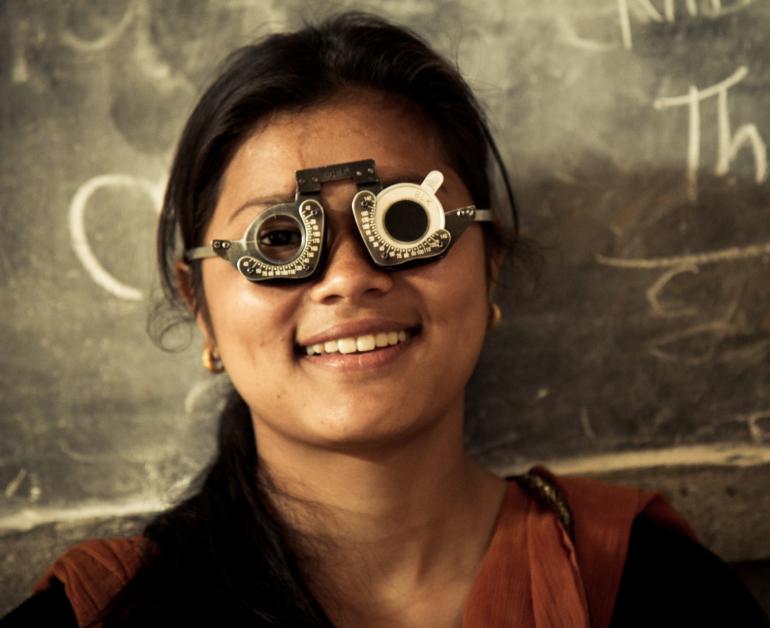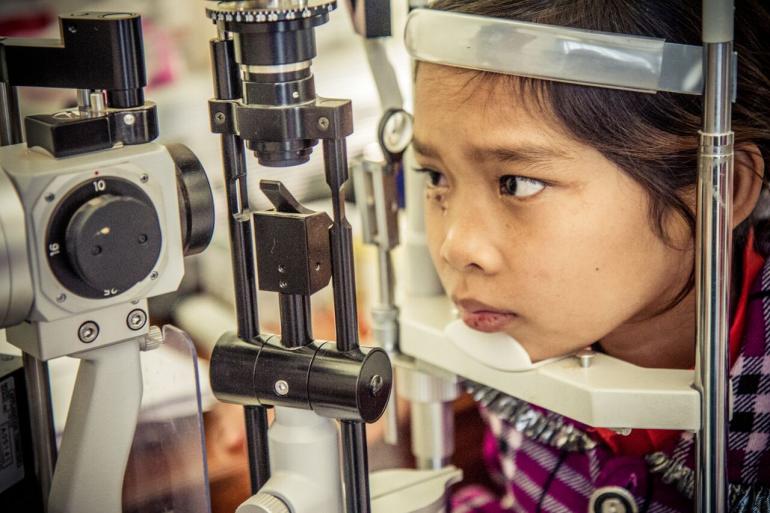Originally posted in The Pioneer, Wednesday March 30, 2016.
Five per cent of school kids complain of strained or tired eyes resulting from endless hours of studying during exam time, writes Dr. Mahipal S Sachdev
Exam time means a lot of reading, writing and spending endless hours either in the library or while gazing at computer screens to hunt for notes and finish assignments. All this usually results in stressful and strained eyes. Therefore, students are advised to take good care of their health and eyes in particular.
Around five per cent of schoolchildren have strained or tired eyes, especially during revision sessions which start just before examination days. So if your child complains of a headache, tired eyes or blurred vision, the best advice is to let them take regular short breaks, close their eyes for a while or look out of the window or at some distant object to relax. Checking a smartphone or watching TV is not a break!
One has to be particular about eyes as tired eyes can be very disconcerting. The last thing parents need to fear during examination days is the unexpected trip to the optician or the eye hospital.
Usually, the symptoms are a result of studying for long hours, or not taking a break in between or studying in bad light.
According to statistics, approximately one in five children need spectacles for sight correction. Hence, it is important to note that if the eye strain persists, then you should take your child for a complete eye check-up to rule out any refractive errors or any other eye disorder.

©Ellen Crystal Photography
But if your child is using a computer or tablets for study purpose then their eye problem could also be linked to computer vision syndrome (CVS) or digital eye strain. This is the condition in which individuals experience eye discomfort and vision problems when viewing digital screens for extended periods. The level of discomfort appears to increase with the duration of digital screen usage. In such a scenario, adjusting the display settings, like brightness, text size, and contrast, etc of your digital screen can help reduce eye strain and fatigue.
Another important point for students to remember while using the computer is to blink often as it moistens your eyes and prevents dryness and irritation. When working on a computer, people blink less frequently than what they normally do. To reduce the risk of dry eyes during computer use, try this exercise: Every 20 minutes, blink 10 times by closing your eyes as if falling asleep (very slowly). This will help re-wet your eyes. Also, to further reduce the risk for CVS, and neck, back and shoulder pain, take frequent breaks in between work.
Here are a few tips for eye care during examinations:
- It is advisable to wear the glasses prescribed when studying, especially while working on digital screens to avoid strain and headache.
- If you are using contact lenses, do not use them for more than 12-14 hours a day.
- Follow the 20-20-20 rule during long hours of study. After every 20 minutes, look out of the window for about 20 seconds at an object which is about 20 feet away. This helps relax your eyes and relieve eye strain.
- Avoid watching TV and playing games on your mobile or iPad in your break time so as to avoid added stress on your eyes.
- It is advisable to keep the reading material at a distance and study in a well-lit room. You should not slouch over the table or read in awkward positions. This might lead to neck pain and headache.
- Lubricant eye drops can be used for soothing eyes during the examination days but only in consultation with your eye doctor.
- Whip up an eye mask. This can help in rejuvenating tired eyes. Take a small washcloth or towel and run it under cold water, wring it and put it over your eyes for 2-7 minutes. Ice cold compresses and tea bags are also beneficial in relieving puffy eyes. For a home-spa effect, add a few drops of lavender oil or rose water to your eye mask.
- Try focusing on objects at different distances to reduce eye strain. Focus on the tip of the pen and bring it closer to your nose at a steady pace. Do 5-10 repetitions. Focusing helps in improving vision and can also help a twitch caused by tired eyes.
- A good night’s sleep and a healthy diet with adequate water intake are also equally important. Good luck for your exams!

©Ellen Crystal Photography
The writer is Chairman, Centre For Sight, New Delhi


